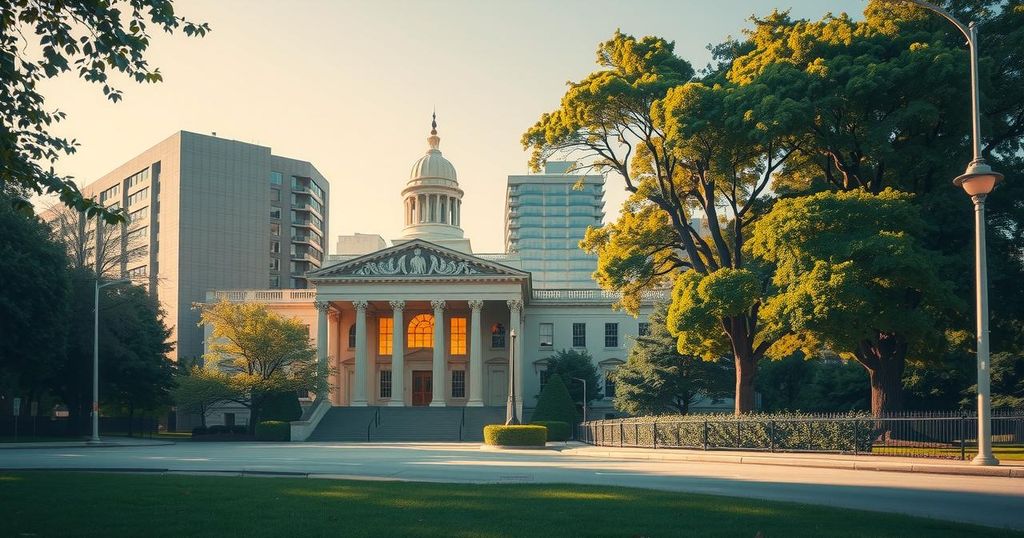BJP Wins Delhi Election, Reclaims Majority Control Over AAP

On February 8, 2025, PM Modi’s BJP won majority control of Delhi’s legislature, defeating the Aam Aadmi Party, led by Arvind Kejriwal. This marks the BJP’s first victory in Delhi since 1998, reflecting public approval for Modi’s governance. Voter concerns included infrastructure and economic policies, following allegations of corruption against Kejriwal.
On Saturday, Prime Minister Narendra Modi’s Bharatiya Janata Party (BJP) regained majority control of New Delhi’s legislature, achieving this status for the first time since 1998. The BJP secured over 40 out of 70 total seats in the Delhi Legislative Assembly, prompting celebrations among supporters. Modi expressed gratitude for the victory, emphasizing that it reflected the people’s will for development and good governance.
BJP leader Amit Shah lauded the win as a testament to public confidence in Modi’s vision for progress. The election result represents a significant setback for the opposition Aam Aadmi Party (AAP), which was founded in 2012 and has been in power since 2015 under the leadership of Arvind Kejriwal. The recent loss comes amid allegations of corruption against Kejriwal, which he contests as politically motivated.
Following the electoral defeat, Kejriwal accepted the outcome graciously, congratulating the BJP on their victory. He previously served as Chief Minister of Delhi until September 2024, after which Atishi Marlena took over his position, retaining her seat in the recent election. Kejriwal’s leadership faced scrutiny, especially after his arrest last year, a move branded by the opposition as an attempt to undermine electoral fairness.
Voter priorities in the 2025 election included economic support and infrastructure development for Delhi. The BJP’s campaign stressed initiatives aimed at poverty alleviation and improving air quality, addressing voter dissatisfaction with AAP’s management of municipal issues, particularly concerning infrastructure. The victory in Delhi comes on the heels of Modi’s government losing its parliamentary majority in the previous general election last year, with recent economic measures signaling attempts to stabilize growth.
In summary, the BJP’s substantial win in New Delhi marks a remarkable political shift, underscoring persistent public demand for effective governance and infrastructure improvement. The outcome reflects ongoing challenges for the AAP amid claims of corruption and public discontent. Modi’s government aims to leverage this win to bolster its position nationally in the eye of voters, particularly concerning economic issues and governance efficiency.
The recent Delhi legislative election is a noteworthy political event in India, illustrating the dynamic nature of regional politics and the implications of governance strategies on voter sentiment. The Bharatiya Janata Party (BJP), under Prime Minister Modi, encountered a pivotal opportunity to regain control in a region previously dominated by the Aam Aadmi Party (AAP), which founded its reputation on an anti-corruption platform. Understanding the historical context of these parties’ governance, as well as the broader socio-economic issues facing voters, is critical to grasping the significance of the election results.
The BJP’s victory in the Delhi elections exemplifies a significant political shift, as it reasserts its control in a vital region after nearly three decades. This win is indicative of the electorate’s demand for effective governance and highlights the challenges faced by the AAP amid allegations of corruption. Modi’s administration is positioned to capitalize on this momentum as it navigates the economic landscape ahead of future electoral contests.
Original Source: www.dw.com







